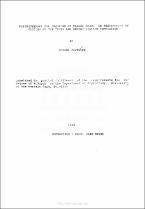Psychotherapy for sequelae of trauma based on testimonies of victims at the Truth and Reconciliation Commission
Abstract
South Africans under the rule of Apartheid were exposed to torturous and traumatic experiences. The implementation of the Truth and Reconciliation Commission (TRC) was all attempt to uncover these traumas and to begin the process of redressing and making reparation for gross human rights violations of the past. The analysis of testimonies of victims at the TRC hearings informed the purpose f or this study. The evidence of psychological indicators and symptoms of trauma would inform the future role of psychologists with victims of human rights violations. Ten transcripts of testimonies were randomly selected and in the qualitative tradition were content analysed culminating in the coding of information into themes and categories. The specific methods used for coding included open and axial coding and the utilization of analytics memos. The results suggested that traumatic events elicited various sequelae of trauma for victims. There ranged from occupational disturbances to family estrangement and social support. From the results themes in symptoms systems and psychotherapeutic interventions were also derived. These themes included physical and psychological symptoms, macro- contextual systems and therapeutic interventions.
Systems theory proved useful in historically understanding symptoms within the context of a lack of co-operation and instability between macro-contextual systems. Psychoanalytic theory was useful to construe an understanding of the relationship between sequalae of trauma and the past of victims and the South African nation. The results suggested that future interventions would largely incorporate interdisciplinary teamwork between various macrosystems, a descripting of the future role of the psychologist and psychodynamic therapeutic interventions specifically related to the symptoms evidenced

